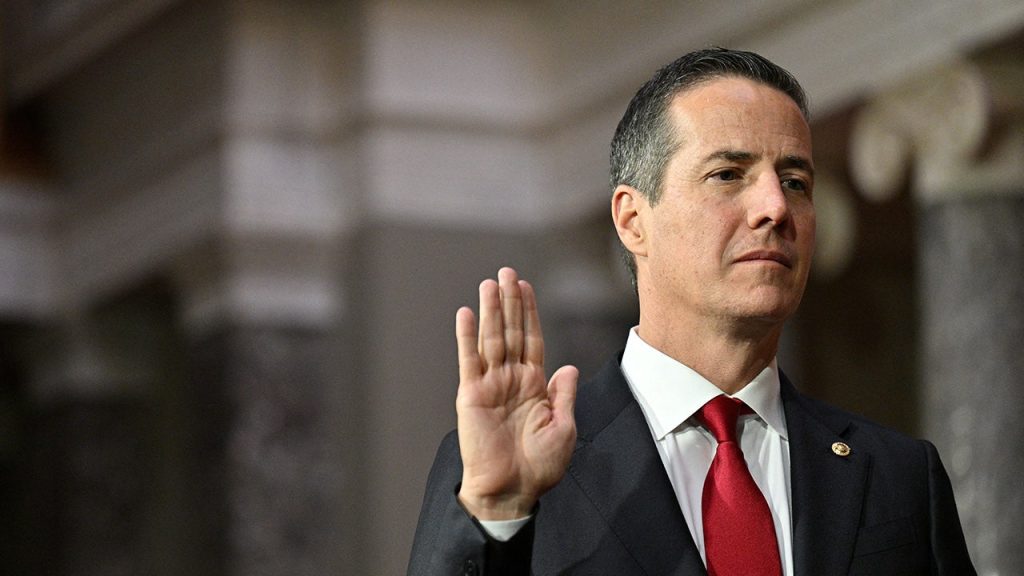Senator Bernie Moreno, newly elected to represent Ohio, has prioritized addressing the southern border situation immediately upon the commencement of President Trump’s term. Moreno firmly believes that securing the border is not a partisan issue, but rather a matter of national security and economic stability that should garner bipartisan support. He envisions legislation focused on halting illegal immigration, securing the border through physical and technological means, and implementing a robust deportation process. Moreno expresses confidence in achieving this legislative goal swiftly, even aiming to present a bill to President Trump immediately upon his inauguration.
Moreno’s proposed legislation centers on providing substantial funding for deportations, strengthening border security measures, completing the border wall, implementing advanced technology, and ensuring sufficient resources for large-scale deportation efforts. He believes this comprehensive approach will effectively address the current border crisis and deter future illegal immigration. While acknowledging the need for 60 votes in the Senate to overcome a potential filibuster, Moreno argues that border security should be a non-partisan issue, garnering support from both Republicans and Democrats. He challenges Democrats to publicly oppose border security measures, framing such a stance as illogical and detrimental to national interests.
The legislative path for Moreno’s proposal involves navigating the Senate’s procedural hurdles, particularly the 60-vote threshold needed to overcome a filibuster. With Republicans holding a slim 53-seat majority, securing Democratic support becomes crucial for the bill’s passage. Moreno’s strategy hinges on framing border security as a national imperative, transcending partisan divides. He believes this approach will pressure Democrats to support the legislation or risk appearing to prioritize partisan politics over national security. This tactic mirrors strategies employed by Senate Minority Leader Chuck Schumer, who has forced votes on contentious issues like abortion and IVF to put Republicans on record.
Senate Majority Leader John Thune could utilize similar tactics by bringing border security measures to the floor for a vote, thereby compelling Democratic senators to publicly declare their stance. This strategy could expose vulnerabilities for Democrats in swing states, particularly those facing reelection, who might be hesitant to oppose measures perceived as enhancing national security. This pressure tactic, coupled with Moreno’s framing of border security as a non-partisan issue, could potentially sway some Democratic votes and pave the way for the bill’s passage.
While Moreno advocates for immediate action on border-related bills, some aspects of immigration reform are anticipated to be incorporated into a larger reconciliation bill. This comprehensive bill is expected to address various policy areas, including tax cuts, energy policy, and defense spending, in addition to immigration. This approach allows for packaging multiple legislative priorities into a single bill, potentially facilitating passage through the reconciliation process, which requires only a simple majority in the Senate.
President Trump has also weighed in on the legislative agenda, emphasizing the importance of border security, energy independence, and renewing his signature tax cuts. He has called for a united Republican front to swiftly deliver these legislative victories and send the bill to his desk for signature as soon as possible. This public call for action underscores the importance of these issues within the Republican platform and signals the President’s eagerness to enact these policies into law upon his return to office. The combined efforts of Senator Moreno, President Trump, and the Republican leadership aim to prioritize border security and other key policy areas in the upcoming legislative session.

